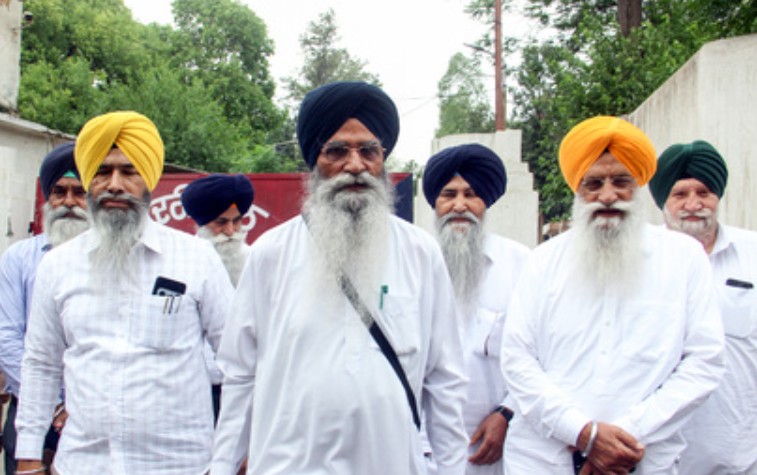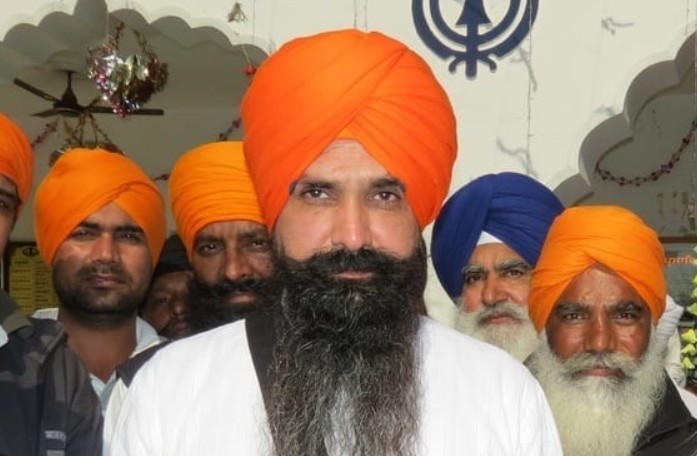A high-level delegation of the Shiromani Gurdwara Parbandhak Committee (SGPC), the apex body managing Sikh shrines, recently held a significant meeting with Balwant Singh Rajoana, a death row convict currently incarcerated in Patiala Central Jail. This meeting, led by the SGPC president Harjinder Singh Dhami, has once again brought the long-pending case of Rajoana into the spotlight, particularly concerning the prolonged delay in the decision on his mercy petition.
Balwant Singh Rajoana was convicted for his involvement in the 1995 assassination of former Punjab Chief Minister Beant Singh. The assassination, which occurred on August 31, 1995, through a suicide bombing, resulted in the death of the Chief Minister and several others. Rajoana, a former police constable, was identified as the backup human bomber in the conspiracy. He was sentenced to death by a special CBI court in Chandigarh in 2007.
Following his conviction and sentencing, the SGPC filed a mercy petition on Rajoana’s behalf with the President of India under Article 72 of the Constitution in 2012, seeking commutation of his death sentence to life imprisonment. Article 72 grants the President the power to grant pardons, reprieves, respites, or remissions of punishment or to suspend, remit, or commute the sentence of any person convicted of any offense.
The meeting between the SGPC delegation and Balwant Singh Rajoana in Patiala Central Jail on Friday, May 2, 2025, took place against the backdrop of a significant delay in the Union government’s decision on this mercy petition, which has been pending for over a decade. Speaking to the media after the meeting, SGPC President Harjinder Singh Dhami expressed strong disappointment and condemnation over this prolonged delay. He accused the Union government of adopting a “biased and discriminatory approach” towards Sikh prisoners in general, and specifically in the case of Balwant Singh Rajoana.
Dhami asserted that the continued inaction on Rajoana’s mercy plea is not only a clear violation of the directions issued by the Supreme Court on multiple occasions but also an infringement upon basic human rights. The Supreme Court had earlier this year directed the Union Government to make a final decision on Rajoana’s mercy plea, emphasizing that if the government failed to do so, the apex court would be compelled to decide the matter on its own merits.

According to Dhami, during the meeting, Balwant Singh Rajoana conveyed his disappointment with the efforts made by the SGPC thus far in expediting a decision on his mercy petition. Rajoana reportedly urged the SGPC delegation to intensify their efforts and build greater public pressure to expose what he perceives as the central government’s deliberate inaction in his case.
Dhami further revealed that Rajoana handed over a letter to the delegation, the contents of which were yet to be fully reviewed by the SGPC chief. However, Dhami indicated that the letter likely reiterated Rajoana’s frustration with the protracted delay and his appeal for a more decisive and effective strategy from the SGPC.
In a significant statement, Dhami conveyed Rajoana’s apparent disillusionment with the judicial and political processes, stating that Rajoana had expressed that he no longer sees any significant difference between life and death, given the prolonged uncertainty surrounding his fate. This sentiment underscores the immense psychological toll that years of confinement on death row, coupled with the protracted delay in the resolution of his mercy petition, have taken on Rajoana.
Following the meeting, the SGPC President announced that the organization would soon convene a meeting of its core members and legal experts to formulate a new and more assertive strategy to seek justice for Balwant Singh Rajoana. Dhami vowed that the SGPC would continue to pursue both legal and organizational efforts to push for an early and favorable decision on his mercy plea.
Dhami also reiterated the SGPC’s long-standing demand for the release of other Sikh detainees who, according to the SGPC, have already completed their sentences but continue to remain incarcerated. He alleged that the failure to release these prisoners reflects a deeper conspiracy and a discriminatory attitude towards the Sikh community.
The meeting between the SGPC delegation and Balwant Singh Rajoana in Patiala Central Jail serves as a stark reminder of the unresolved issues and lingering grievances related to the aftermath of the militancy period in Punjab. The prolonged incarceration of individuals convicted in connection with that era, coupled with the perceived delays in the judicial and executive processes concerning their cases, continues to be a sensitive and politically charged issue within the Sikh community. The SGPC, as the representative body of the Sikhs, plays a crucial role in advocating for the rights and concerns of these individuals. The outcome of the SGPC’s renewed efforts in the case of Balwant Singh Rajoana will be closely watched by various stakeholders, including the Sikh community, human rights organizations, and the political establishment.


